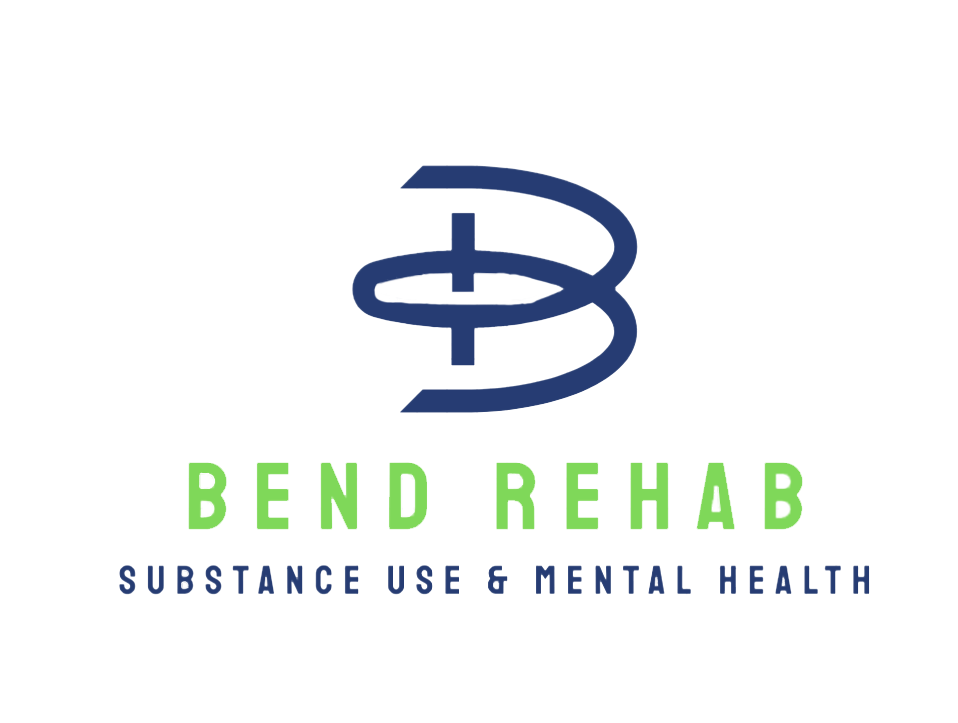Drug Rehab Program in Bend OR
Substance abuse continues to be a growing concern in Bend, OR, impacting individuals and families from all walks of life. Addiction doesn’t discriminate—it can affect anyone, regardless of age, background, or circumstances. For many, overcoming addiction can feel like an overwhelming and isolating task, but there is hope. A professional drug rehab program in Bend OR provides a structured and supportive way to reclaim control over life. These programs are designed to address not only the physical aspects of addiction but also the emotional, mental, and social factors that contribute to substance abuse. They often include personalized treatment plans, therapy sessions, and access to a community of supportive peers. This comprehensive guide will walk you through the many benefits of enrolling in such a program, detailing how it helps people recover successfully, rebuild their health, regain their confidence, and rediscover the joy of living a fulfilling life free from addiction.
The Comprehensive Approach to Treatment in Drug Rehab
Every individual battling addiction has a unique story shaped by their experiences, challenges, and personal struggles. Factors like family history, trauma, mental health issues, and social environment all play a role in their journey. A successful rehab program recognizes this individuality by offering personalized, holistic care tailored to address the mental, physical, and emotional aspects of recovery. This means creating a plan that considers not just the addiction itself, but also the underlying causes and contributing factors. By focusing on the whole person, such programs aim to not only treat the addiction but also build resilience, teach coping mechanisms, and equip individuals with the tools and support they need to rebuild their lives. Whether it’s through counseling, peer support, skill-building workshops, or medical care, these efforts work together to help individuals achieve and maintain long-term wellness while restoring a sense of purpose and hope for the future.
Personalized Assessments
Recovery begins with an initial assessment conducted by trained professionals, which serves as the foundation for effective treatment. This critical step involves a thorough evaluation of the individual’s physical, mental, and emotional health. It helps determine the scope and severity of the addiction, identify any co-occurring mental health disorders such as anxiety or depression, and pinpoint specific challenges the individual may face. These assessments also consider personal history, substance use patterns, and lifestyle factors. By gathering this comprehensive information, professionals can design custom treatment plans that not only address the root causes of addiction but also help manage the physical dependency on substances. This tailored approach ensures that each individual receives the care and support they need for a successful recovery journey.
Physical and Psychological Healing
Dual-focused treatment ensures that both the body and mind are on the path to recovery, recognizing that physical and mental health are deeply interconnected. Medical professionals provide comprehensive care to address physical health challenges, including managing detox, withdrawal symptoms, and any associated medical complications. At the same time, therapists work closely with individuals to explore and tackle the psychological roots of addiction, such as unresolved trauma, chronic stress, or underlying mental health conditions like anxiety or depression. This holistic approach not only helps individuals overcome addiction but also equips them with the tools and strategies needed to maintain long-term recovery and overall well-being.
Types of Therapies Offered at Bend Rehab Programs
One of the hallmarks of an effective drug rehab program in Bend OR is the variety of therapies it offers. These programs combine traditional methods, such as counseling and group therapy, with innovative approaches like holistic treatments, art therapy, or mindfulness practices. By providing a diverse range of therapies, they can address the physical, emotional, and psychological aspects of recovery, ensuring a more comprehensive and personalized healing process for each individual.
Individual Therapy
Personalized therapy sessions provide a private and safe environment where individuals can dive deep into the underlying factors contributing to their addiction. These sessions are tailored to address the unique needs and circumstances of each client, ensuring a more effective healing process. Therapies such as Cognitive Behavioral Therapy (CBT) and Dialectical Behavioral Therapy (DBT) play a key role in this journey, empowering clients to identify and challenge harmful thought patterns that may fuel their addiction. Through guided techniques, clients learn to replace these patterns with healthier, more constructive behaviors, ultimately fostering long-term recovery and emotional resilience.
Group Therapy
Group therapy provides a sense of community among patients, offering a supportive environment where individuals can feel understood and less alone. Sharing personal experiences, challenges, and triumphs with others who are on similar journeys fosters genuine connections and reduces the isolation that addiction often brings. Being part of a group allows participants to see that they are not alone in their struggles, which can be incredibly comforting during difficult times. Hearing others’ success stories not only provides inspiration but also serves as a source of motivation and hope, showing that recovery is achievable and that setbacks can be overcome with perseverance and support.
Family Therapy
Addiction doesn’t just impact the individual; it affects their family, loved ones, and the relationships they share. Often, addiction creates cycles of mistrust, miscommunication, and emotional strain that ripple through the lives of everyone involved. Family therapy sessions aim to rebuild this trust, improve communication, and repair the damage to these important relationships. By bringing family members together in a supportive setting, these sessions encourage healthy dialogue, mutual understanding, and shared accountability. They also emphasize the critical role of a strong support network in achieving and maintaining long-term recovery, helping both the individual and their loved ones heal and grow together.
Innovative Therapies
Rehab programs are not one-size-fits-all, as everyone’s path to recovery is unique. Non-traditional therapies like art therapy and equine therapy offer creative and alternative ways to support emotional healing and personal growth. Art therapy allows individuals to express emotions through painting, drawing, or other creative outlets, which can help process difficult feelings without needing to rely solely on words. Equine therapy, on the other hand, involves working with horses to build trust, reduce stress, and improve emotional regulation. These methods can be particularly beneficial for individuals who may struggle to connect with traditional talk-based therapy, offering them a fresh approach to developing coping mechanisms and fostering a sense of inner peace.

The Importance of a Safe and Effective Detoxification Process
Detox is often the first and most challenging hurdle in the journey to recovery, as it involves clearing harmful substances from the body. This process can feel overwhelming and intimidating for many individuals. Thankfully, drug rehab program in Bend OR offer medically supervised detox services, ensuring that patients are cared for in a safe and supportive environment. With experienced medical professionals monitoring the process, individuals can manage withdrawal symptoms effectively and focus on building a solid foundation for long-term recovery. This critical step is handled with care and compassion, prioritizing both safety and comfort every step of the way.
Managing Withdrawal Symptoms
Under professional supervision, patients are supported in managing withdrawal symptoms that can range from mild discomfort, such as headaches or nausea, to severe health risks, including seizures or cardiovascular complications. Skilled medical staff closely monitor patients to ensure their safety and provide interventions when necessary, such as medication to alleviate symptoms or emotional support to ease the process. This supervision not only makes the detox process safer by addressing potential complications promptly but also significantly increases the chances of successfully completing it and starting the recovery journey on a stable footing.
Education and Skill Building for Sustained Recovery
Recovery requires more than just stopping substance use; it’s a comprehensive process that focuses on helping individuals rebuild their lives and develop the tools they need to thrive well beyond rehabilitation. This journey involves addressing emotional well-being, such as managing stress, anxiety, and past trauma, which often play a critical role in substance use. It also includes fostering healthy relationships, whether by repairing strained family bonds or building new, supportive connections. Developing effective coping strategies is essential for navigating life’s challenges without returning to old habits, while creating a sense of purpose—through work, hobbies, or giving back to the community—helps individuals lead fulfilling, sustainable lives in recovery. True recovery is about regaining control, finding balance, and creating a life of meaning and resilience.
Understanding Addiction
Educational workshops within rehab programs often focus on the science of addiction, providing individuals and their families with a deeper understanding of the complex factors behind substance abuse. These workshops explore the biological aspects, such as how addiction affects brain chemistry and function, as well as the psychological triggers and behavioral patterns that contribute to dependency. Additionally, they address the social influences, including environmental factors and peer pressure, that can lead to or sustain substance use. By offering this comprehensive knowledge, these programs empower participants to make informed decisions about recovery and build a stronger foundation for long-term success.
Coping Mechanisms
Patients learn practical tools such as stress reduction techniques, mindfulness practices, and problem-solving strategies that equip them to navigate challenging situations. These tools are designed to help them manage triggers, cravings, and high-stress moments in healthier ways, avoiding the need to rely on substance use as a coping mechanism. By incorporating these skills into their daily lives, patients can build resilience, improve emotional regulation, and gain the confidence to face difficult circumstances with greater clarity and control.
Life Skills Training
From managing finances to creating healthy daily routines, life skills workshops equip individuals with the tools they need to navigate the challenges of reintegration into society. These workshops focus on practical skills such as budgeting, time management, cooking, and effective communication, helping participants build confidence and independence. Building self-sufficiency is a crucial step toward achieving long-term recovery success, empowering individuals to lead stable and fulfilling lives.
Relapse Prevention and Ongoing Support
Even after rehab ends, maintaining sobriety can be challenging as individuals return to daily life and face triggers or stressors. That’s why good rehab programs go beyond initial treatment, focusing on crafting robust relapse prevention strategies tailored to each person’s needs. These programs often include tools like coping mechanisms, support group connections, and personalized aftercare plans. Providing continued support, whether through therapy, counseling, or peer support networks, plays a crucial role in helping individuals stay on track and build a fulfilling, substance-free life.
A Personalized Relapse Prevention Plan
By working closely with therapists, patients can create comprehensive relapse prevention plans tailored to their individual needs, goals, and triggers. These plans are carefully designed to identify high-risk situations, develop coping strategies, and build a strong support network. Serving as actionable roadmaps, they help individuals maintain sobriety and navigate life’s ups and downs with greater confidence and resilience. With the guidance of a therapist, patients can learn to recognize early warning signs and implement proactive measures to stay on track.
Ongoing Support Groups
Community support doesn’t stop after the program ends. Groups like Narcotics Anonymous (NA), which provide a structured and supportive environment, play a critical role in helping individuals maintain their recovery. Additionally, peer-led support groups specific to Bend offer a more localized approach, fostering a sense of belonging and shared experience within the community. These groups allow individuals to sustain meaningful connections, share their challenges and victories, and continue finding encouragement as they navigate the transition back into everyday life and work toward long-term recovery.
Real-Life Success Stories from Bend OR
Hearing about the victories of others can be incredibly inspiring for those considering rehab. Here are two testimonials from individuals who have completed drug rehab program in Bend OR:
- Casey, 32: “I came to rehab feeling hopeless, but the support at Bend Rehab changed everything. I’ve been clean for 18 months now, and my relationship with my family has never been stronger.”
- Emily, 25: “The group therapy sessions were the most healing part of the process for me. Getting to hear others’ stories reminded me I wasn’t alone. This community saved my life.”
Conclusion
A drug rehab program provides a transformative opportunity for life-changing recovery. These programs focus on addressing both the physical and psychological aspects of addiction, offering a personalized approach to healing. By incorporating a variety of therapies such as counseling, behavioral therapy, group support, and holistic practices, rehab programs equip individuals with the tools and strategies needed for long-term success. They also provide a safe and supportive environment where individuals can work through challenges, develop healthy habits, and rebuild their lives with confidence. Don’t wait to reclaim control over your life or help someone you love break free from the cycle of addiction. Take the first step today by reaching out to a trusted drug rehab program in Bend, OR. Our professional staff is waiting for your call at 1 (541) 802-7214 or visit our website. With compassionate professionals and proven methods, your path to healing and a brighter future begins now.




